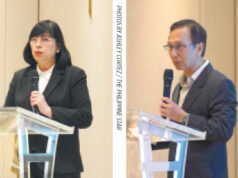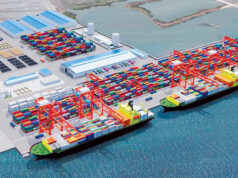Created as a purely independent regulatory body performing the combined quasi-judicial, quasi-legislative, and administrative functions in the electric industry under the Electric Power Industry Reform Act of 2001 (EPIRA) or R.A. 9136, the Energy Regulatory Commission (ERC) is tasked with ensuring consumer education and protection and promoting competitive operations in the electricity market.
In order to carry out this undertaking as stated under Section 43 of EPIRA, ERC is obliged to promulgate necessary rules and regulations, including competition rules, and impose fines or penalties for any noncompliance with or breach of R.A. 9136.
Among its objectives are the promulgation/approval of rules, regulations, guidelines, and policies; enforcement of rules and regulations, including issuance of permits and licenses; resolution of cases and disputes; and promotion of consumer interest.
Although the commission admitted that it has faced a number of challenges over the past years, it continues to strive to create a regulatory environment that is democratic and transparent and that equitably balances the interests of both the consumers and the utility investors.
In line with this goal, the commission positively noted that it had recently accelerated the disposition of cases and issues lodged before it for the first four months of this year.
In a press release last May, ERC Chairperson and Chief Executive Officer Agnes VST Devanadera stated that the commission achieved “meaningful milestones,” and that these significant achievements were realized through the continuing guidance and support from President Rodrigo R. Duterte’s office.
ERC mentioned that it had issued four policies that would reduce the retail rate of electricity at the distribution utility level, upgrade the standards for distribution management, and protect consumer welfare.
These issuances were as follows: Rules on System Loss Cap for Distribution Utilities and the Performance Incentive Scheme; Resolution Adopting the Amendments to the Rules for the Distribution for Net Settlement Surplus (NSS); Resolution Approving the Philippine Distribution Code (PDC) 2017 Edition; and Rules Supplementing the Switching and Billing Process and Adopting a Disconnection Policy for Contestable Customers.
The commission also stated that it had approved 16 Power Supply Agreements (PSA); seven Capital Expenditure (CAPEX) Applications with a total amount of P 1.15 billion, with corresponding permit fees of P8.59 million; and 25 decisions and show cause orders.
These approvals, according to ERC, are all in accordance with the commission’s ongoing Zero-Backlog Project. Also in pursuit of that goal, ERC revealed that, with assistance from the World Bank, it has developed an online platform to streamline and digitize eight of its work processes, including the filing of applications.
“The past four months were truly challenging, but we were able to achieve significant accomplishments with the valuable contributions of the Commissioners,” Ms. Devanadera said in a statement.
The commission has also improved its organizational structure and system through the revamping of the department in charge of hiring personnel. Moreover, the ERC inked a partnership with online employment marketplace Jobstreet Philippines in order to expedite the filling up of the 152 plantilla positions (technical and legal manpower complement).
The ERC also announced its compliance with the Civil Service Commission’s (CSC) directive on the submission of a Merit Selection Plan with System of Ranking Position; as well as with the joint guidelines of CSC, Department of Budget and Management, and Commission on Audit on job orders and contract of service.
Furthermore, the commission stated that it has created an ERC Disciplinary and Investigating Committee. Pursuant to Section 34 of the 2017 Rules on Administrative Cases in the Civil Service, the committee is responsible for the conduct of formal investigation into disciplinary administrative cases against ERC employees.
The press release also noted that the commission had formed an ERC Legislative Liaison unit for the efficient, effective, and timely coordination and monitoring of proposed measures with regulatory implications.
In a separate statement, the commission also made an announcement that this June — just in time for its 17th anniversary — it will launch an innovative automated work process. The initiative, called the ERC Web Portal for Interactive and Systematic Exchange (eWISE), aims to improve regulatory efficiency and the effectiveness of the commission’s work processes, as well as to better manage regulatory work.
A centralized database, eWISE, according to ERC, will benefit stakeholders as it embeds all regulatory approval processes in a system with full documentation and recorded justification. In addition, it will improve quality and data governance to minimize data loss, as well as establish a single source of truth.



